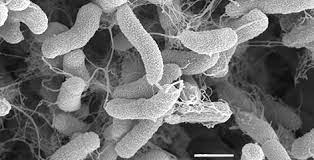Health
Top facts about Cholera diarrhea diseases outbreak in Nigeria

The Federal Capital Territory Administration has intensified community sensitisation on cholera and severe diarrhoea diseases outbreak, as the death toll rises from 54 to 60.
The FCT Minister of State, Dr Ramatu Aliyu, made the disclosure at the continuation of sensitisation on cholera and other acute diarrhoea diseases in Pyakasa and Gwagwa communities on Thursday in Abuja.
Aliyu indicated that suspected cases of cholera in the territory rose from 604 to 698 within 72 hours.
Represented by Dr Iwot Ndaeyo, the acting Executive Secretary of FCT Primary Health Care Board, the minister said that Abaji Area Council also recorded three suspected cases with no death.
She said that “Abuja Municipal Area Council recorded 281 suspected cases with 22 deaths and
Bwari Area Council recorded 134 suspected cases with 22 deaths.
“In Gwagwalada Area Council, 220 suspected cases with nine deaths were recorded, Kuje Area Council had
23 suspected cases with four deaths and Kwali Area Council recorded 37 suspected cases with three deaths.”
Aliyu described the trend as “unacceptable in the FCT”, adding that “the administration would not fold its hands and watch residents die helplessly over preventable diseases.
“We must take every necessary step to curb the further spread.”
She urged FCT residents and critical stakeholders to publicise the message of cholera prevention, proper sanitation with the practice of hand hygiene in their respective communities.
Earlier, the Chairman, Abuja Municipal Area Council, Alhaji Abdullahi Candido, affirmed the council’s commitment to forestall the continuous spread of the disease to adjoining and other communities.
He said the Primary Health Care Department of the council had embarked on sensitisation to
the four chiefdoms in AMAC to enlighten the traditional rulers and their councils about the cholera outbreak and preventive measures.
He added that “on our part as an area council, we swung into action immediately we received the news of the outbreak and its confirmation in June.
“We quickly mobilised our health personnel in our primary healthcare facilities for prompt responses.
“Following the recommendations from the outbreak report, we provided funds for a quick purchase of drugs, infusions and other treatment materials and consumables, in addition to the ones we received from the FCT Public Health Department.”
As part of NewsWireNGR mission to not only tell under-reported stories but importantly inform and educate our readers using advocacy, we’ve decided to share top facts about Cholera and what you need to know about the early signs and symptoms of this diseases – this is all brought to you by the World Health Organisation.
Key facts
Cholera is an acute diarrhoeal disease that can kill within hours if left untreated.
Researchers have estimated that each year there are 1.3 to 4.0 million cases of cholera, and 21 000 to 143 000 deaths worldwide due to cholera (1)
Most of those infected will have no or mild symptoms and can be successfully treated with oral rehydration solution.
Severe cases will need rapid treatment with intravenous fluids and antibiotics.
Provision of safe water and sanitation is critical to prevent and control the transmission of cholera and other waterborne diseases.
Oral cholera vaccines should be used in conjunction with improvements in water and sanitation to control cholera outbreaks and for prevention in areas known to be high risk for cholera.
A global strategy on cholera control, Ending Cholera: a global roadmap to 2030, with a target to reduce cholera deaths by 90% was launched in 2017.
Cholera is an acute diarrhoeal infection caused by ingestion of food or water contaminated with the bacterium Vibrio cholerae. Cholera remains a global threat to public health and an indicator of inequity and lack of social development. Researchers have estimated that every year, there are roughly 1.3 to 4.0 million cases, and 21 000 to 143 000 deaths worldwide due to cholera .
Symptoms
Cholera is an extremely virulent disease that can cause severe acute watery diarrhoea. It takes between 12 hours and 5 days for a person to show symptoms after ingesting contaminated food or water . Cholera affects both children and adults and can kill within hours if untreated.
Most people infected with V. cholerae do not develop any symptoms, although the bacteria are present in their faeces for 1-10 days after infection and are shed back into the environment, potentially infecting other people.
Among people who develop symptoms, the majority have mild or moderate symptoms, while a minority develop acute watery diarrhoea with severe dehydration. This can lead to death if left untreated.






